
What Do “Serif” and “Sans Serif” Mean? TrendRadars
Updated on January 3, 2023 What is serif and sans serif? Serif typefaces are recognized by the tiny lines or "feet" that extend off of the letters. "Sans," which is Latin for "without," lack these small lines. Keep reading to learn more! What is the difference between Serif and Sans Serif fonts?
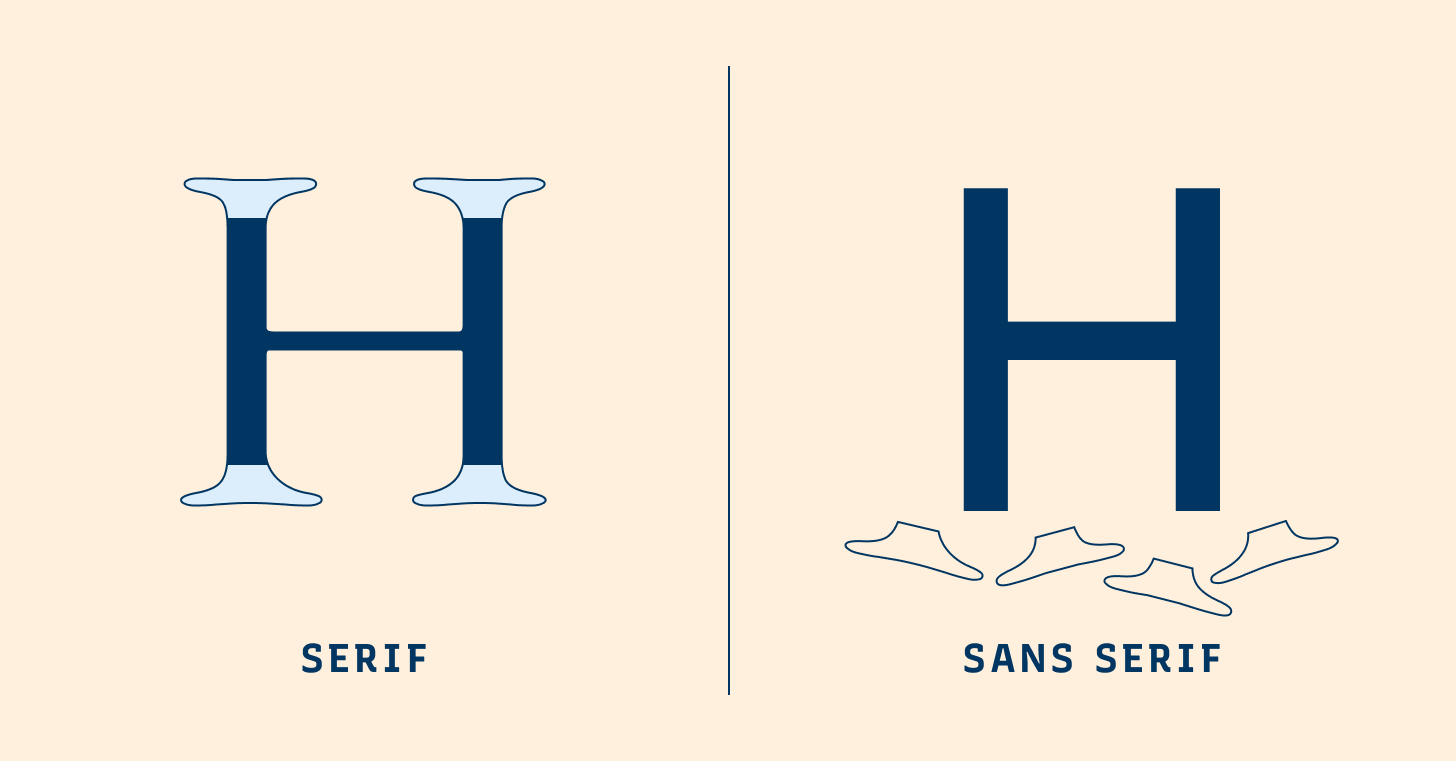
Sans Serif Styles You Must Know to Improve Your Design
Serif and Sans-Serif Fonts - What's the Difference? You've undoubtedly heard the terms Serif and Sans-Serif Fonts when it comes to design - but what's the difference? This post breaks down the key differences between Serif and Sans-Serif fonts and how they came to be.

Sans Serif vs Serif Font Which should you use and when? GCS Malta
What Is the Difference Between Serif and Sans-Serif Fonts? Want to Learn More About Tapping Into Your Graphic Design Genius? What Is a Serif Font? Serif fonts are typefaces that have serifs, which are extra strokes on the ends of their letterforms. These typefaces evoke feelings of history, tradition, honesty, and integrity.
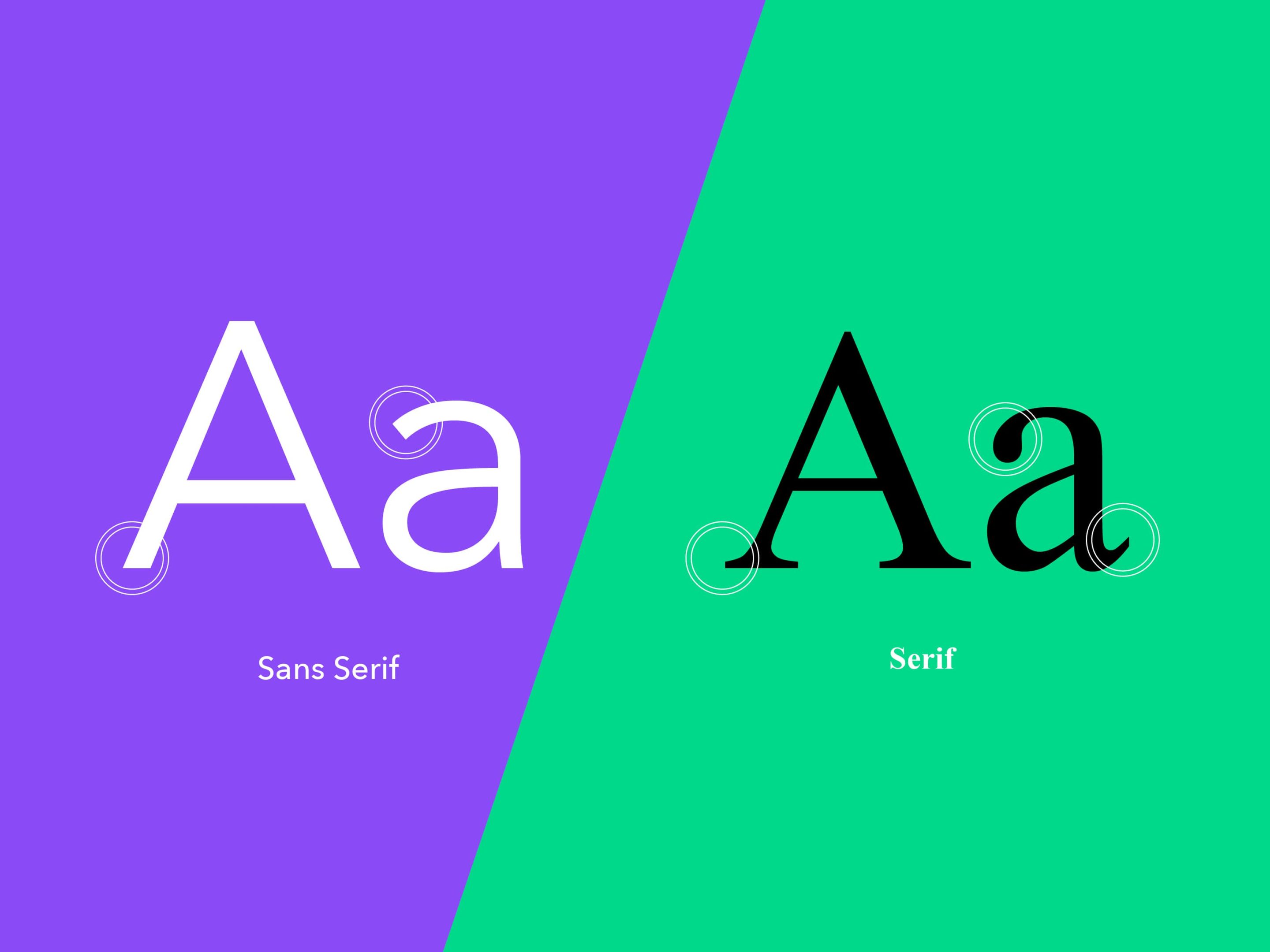
Serif et Sans Serif Quelle est la différence ? Beyond
A typeface designed without serifs. Typically, sans serif faces have lower contrast and larger x-heights than serifs.

ฟรี ฟอนต์ Sans Serif 20 แบบ ที่เจ้าของธุรกิจจะต้องหลงรัก
In contrast, sans serif fonts, with their clean lines, find favor in digital contexts, enhancing readability on screens. The comparison of serif vs sans serif fonts is particularly relevant when considering the visual appeal and readability of written content. The term "san serif" is a common typo for "sans serif.".

What Is Typography A Journey To Type Alter Design
A serif refers to an ornamental stroke that snuffs out the end of a letter stem. You might sometimes hear people call it the letters "feet"). A sans serif, on the other hand, can easily be understood as the opposite of a serif font. The word "sans" is a French word, which means "without," and here, it refers to the nonexistence of.

Serif and Sans Serif Typography Combination Awwwards
Serif fonts are generally stable, responsible and dependable. In the subtleties, they're elegant, refined and altruistic. On the other hand, sans serif fonts are modern, relatable and easygoing. These differences in their personalities affect your designs as well. The same qualities that viewers apply to typography subconsciously extend to.

Sansserif Wiki Everipedia
This sans serif and serif font combination is classic, which makes it one of the best font combinations! 17. Gorgeous (OTF, TTF, WOFF) and Handmade (OTF, TTF) Gorgeous Serif Font. Handmade Wanderlust Font Duo. Gorgeous is a modern serif font that's suitable for fashion editorials.

Graphic Design Terms 56 Serif vs Sans Serif Kaz Design Works
Sans Means "Without" Okay, now we know what a serif looks like, what is a "sans serif" font? If you know what the word "sans" means you've probably already figured it out.
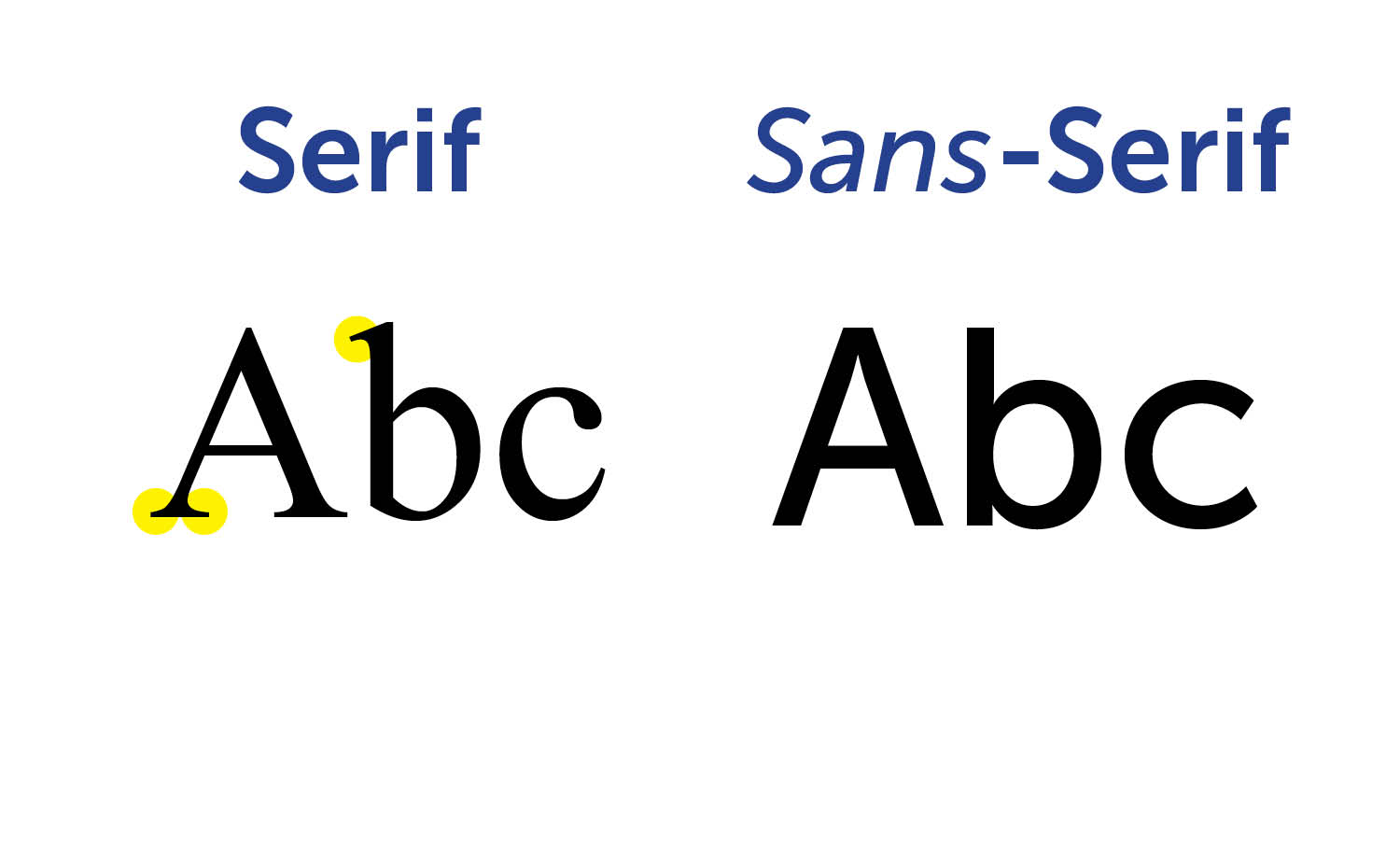
Serif vs. Sans Serif Fonts
Generally speaking, serif fonts are more traditional while sans serif fonts have a more modern feel. But there are exceptions to every rule. "Although the rule of thumb is that sans-serif equals modern and serif equals traditional, they can also be explored to break design stereotypes," says Downey. So, depending on how you use your fonts.
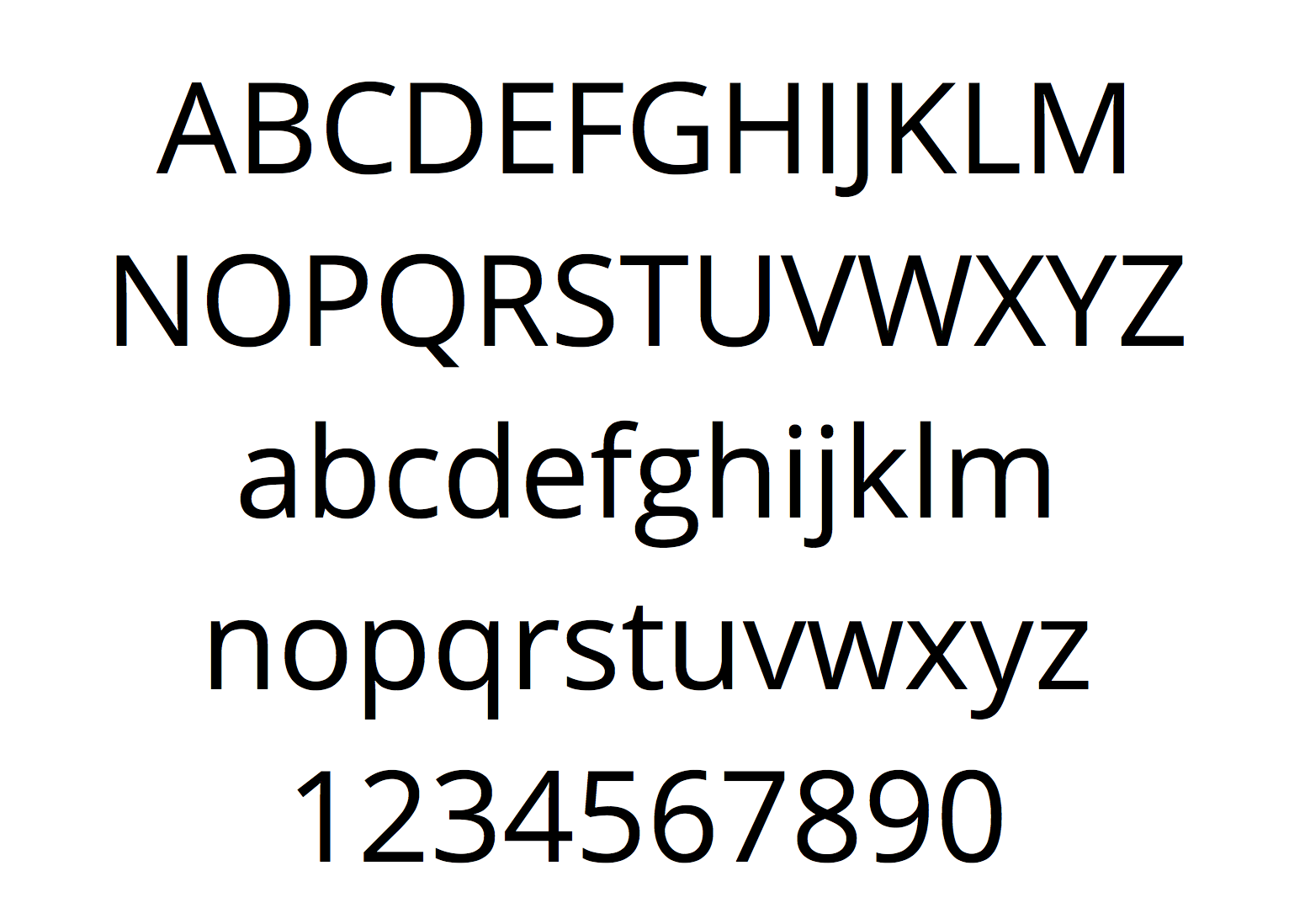
Sans Serif Font Examples What font choices are there for my text
While serif fonts are all about evoking the past era, sans serif typefaces are about exuding modernism and sophistication. Their minimalistic and simple look makes them more modern. If your target audience is the younger generation, sans serif fonts are the fonts to choose. Tech companies and startups use sans serif fonts to convey.

Serif vs. Sans Serif fonts
The main difference between serif and sans serif fonts is the type design. Serif fonts have serifs — the small lines or "feet" on the ends of their characters. On the contrary, sans serif fonts don't have them. ( Sans is the French word for "without," so sans serif literally means "without serifs"). The example below, Addington, is a serif font.

Serif vs. Sans Serif fonts
In typography and lettering, a sans-serif, sans serif, gothic, or simply sans letterform is one that does not have extending features called "serifs" at the end of strokes. [1] Sans-serif typefaces tend to have less stroke width variation than serif typefaces. They are often used to convey simplicity and modernity or minimalism.
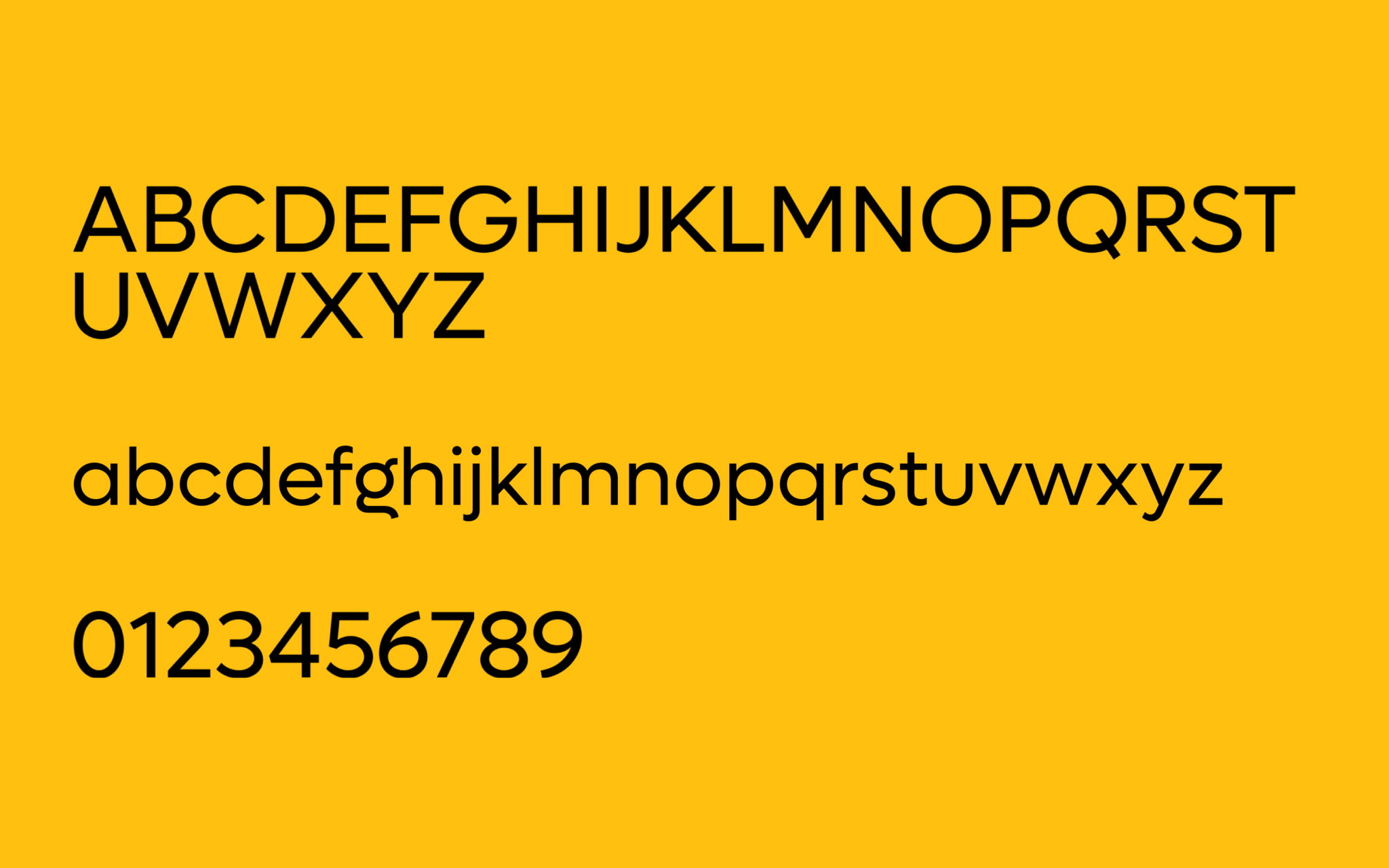
The 15 Best Sans Serif Fonts For Print, Logo And Web Design
As their names suggest, the fundamental difference between serif and sans serif fonts has to do with serifs, i.e. decorative lines that extend beyond letter edges. Serif fonts have serifs at the end of each letter. Some of the most commonly used examples include Times New Roman, Garamond, Baskerville, Georgia, and Courier New.
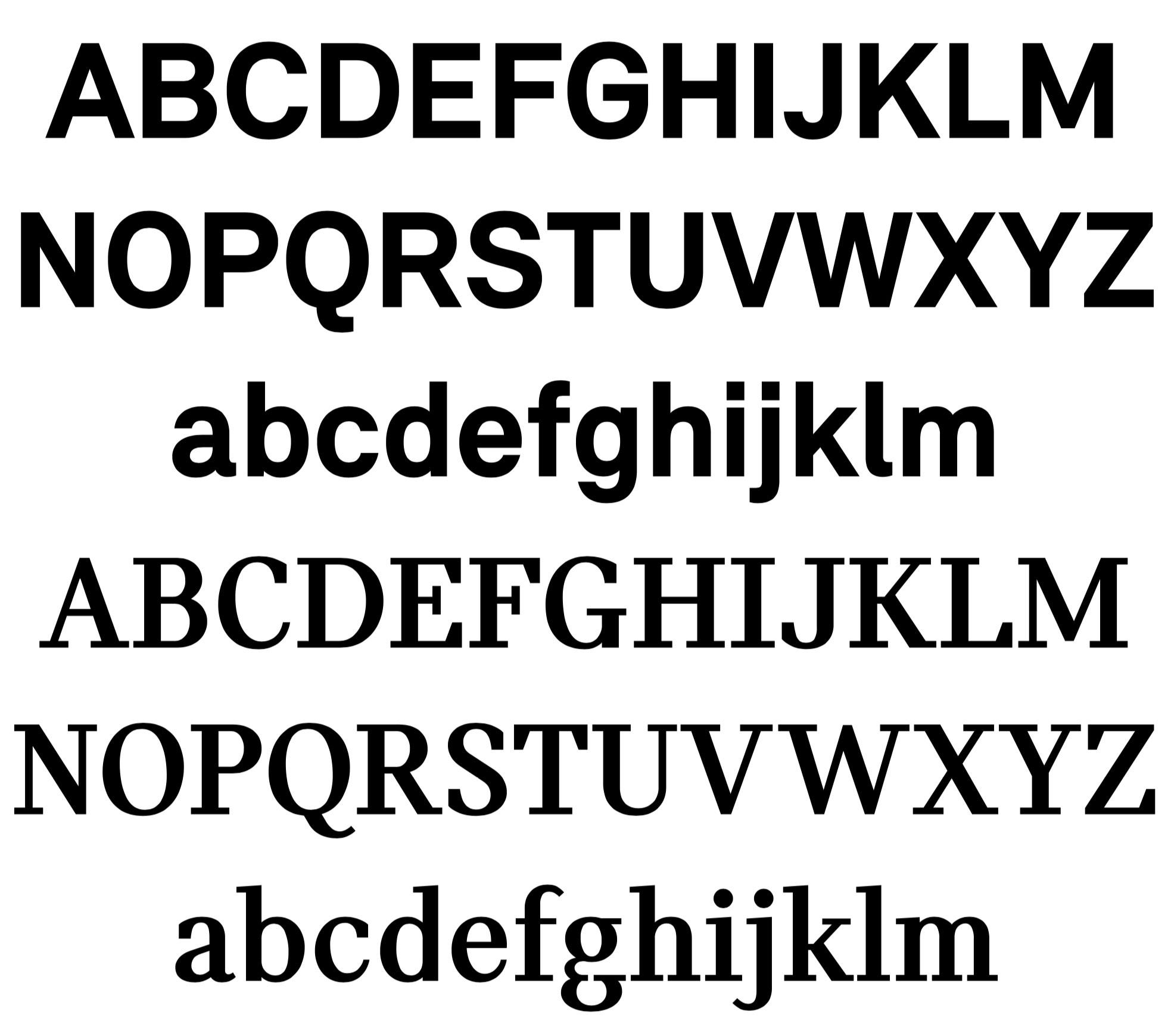
MINI Serif & Sans Serif Font List entries Typography.Guru
Some studies, however, suggest that readers actually prefer san-serif font when reading at length. Sans-serif fonts are valued for their quiet and cerebral demeanor, but some will certainly make the argument that they've jumped the shark and have become the "pretentious" choice. Some brands may wish to leave a different sort of impression.

Sans Serif Fonts For Logos
1. Old Style This is the oldest Serif family. It includes fonts such as Adobe Jenson, Centaur, Goudy Old style, and many more. Their typeface is modeled on what text used to look like in the 1400s. Very old-looking. Image credits 2. Transitional This is a bit more modern-looking.